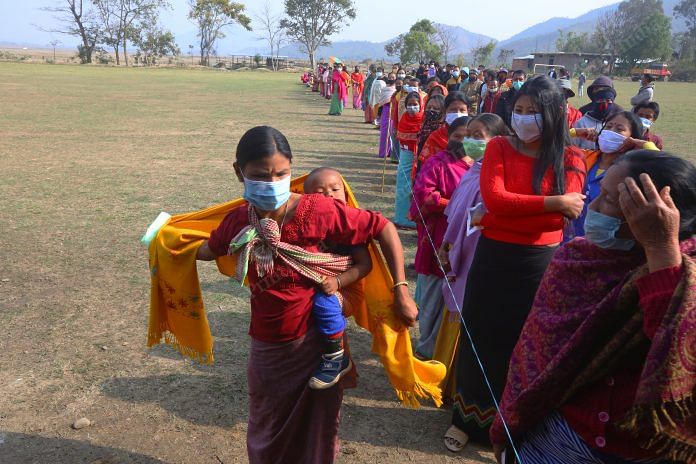NOTA or None Of The Above became an option in the electoral process with the Supreme Court’s direction in the Public Interest Litigation filed by the People’s Union of Civil Liberties in 2013. As citizens, now we have the freedom to elect the candidates nominated by the political parties or express our dissatisfaction with the nominations, maintaining the secrecy assured by the election procedures. However, are we exploring the potential of NOTA to its best? NOTA got 1.08 per cent and 1.04 per cent of the total votes in the elections to the Lok Sabha in 2014 and 2019, respectively. Does this imply that 98.96 per cent of the electors who voted were satisfied with the candidates who competed in the election? Did we elect a legislature that we could be proud of?
According to the analysis conducted by the Association of Democratic Reforms, 233 MPs elected in the Lok Sabha elections in 2019 are facing criminal charges. They make up 43 per cent of the Lok Sabha, and the basis of this data is the candidates’ affidavits. Among them, 159 MPs, 29 per cent of Loksabha, are involved in serious criminal offences like rape, other crimes against women, murder, attempt to murder, kidnapping, etc. If we look at the data for the previous years, the number of people who faced criminal offences in 2009 was 162, 30 per cent of Lok Sabha, and in 2014 it was 185, 34 per cent of the Lok Sabha. The number of people who faced serious criminal offences in 2009 was 76, 14 per cent of the Lok Sabha, and in 2014 it was 114, 21 per cent of the Lok Sabha. It implies that from 2009 to 2019, there has been an increase of 109 per cent in the number of people facing serious criminal offences.
However, the irony is, as per the recently released list of unparliamentary words, the words like corrupt, cheat, betrayal, abused, ashamed, gundas, incompetent, irresponsible, murder, rape, and theft are considered unsuitable for use. Does the onus of such a situation lie only on politicians? When we repeatedly elect the same people with such histories as representatives, can we blame or place responsibility on someone else? Shouldn’t we discuss and find solutions to enhance the country’s quality of politics and governance?
Also read: In Modi vs Kejriwal match, it’s hard to keep the scoreboard. One-upmanship is constant
NOTA is a potent democratic tool that can change the image of Indian democracy. We can use it to elect people with integrity, to express our dissatisfaction and dissent. In constituencies where all the candidates are undeserving, we shouldn’t hesitate to elect NOTA. We can make a case for disqualifying the candidates from the constituencies where NOTA gets a majority for that election term. These candidates could use the next five years to correct themselves, improve themselves, and contest in the next election. We could argue to conduct re-election in the same constituencies with new candidates. Hence, prompt political parties to field capable candidates responsibly. According to the Supreme Court’s recent judgement, a political party is liable to explain why the party ticket was given to a candidate with pending criminal cases, even when there were other potential candidates with a clean profile. Along with this, proactive actions from citizens like realising the potential of NOTA and using it to advance democratic practices would compel political parties to act responsibly.
In the current situation, there is a lack of clarity about what would happen if NOTA gets the majority votes. The primary reason for this is that such a situation has never arisen. Another reason is that no one expects such a situation to happen shortly, given the considerable lack of awareness amongst us citizens regarding NOTA. Hence we should make a conscious effort to increase awareness and realise its full potential. The downside to the above concept could be the increased election expenditures and reiterative election processes, mobilising people. But, as citizens, if we are not ready to make such efforts, we will have to remain satisfied with the politics happening in the country.
The parliamentarians make the laws of the land, which determine the course of our lives in the country. And the onus of choosing the parliamentarians lies with the citizens of a nation. Citizens are the fifth and the central pillar of democracy. From 130 crore people, if we cannot find 545 people who are not corrupt, not involved in criminal cases, and are capable, performing, and visionaries, it reflects our failure as a population.
The author is a student at IIM Kozhikode. Views are personal




